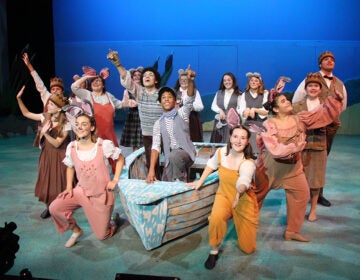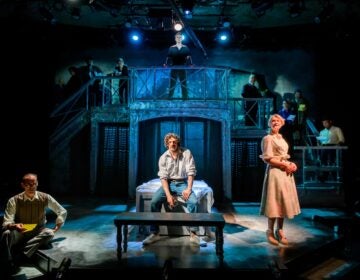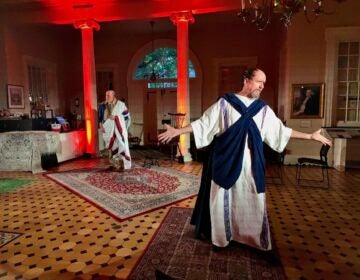They can’t take the stage, so theater artists create work for online world
The coronavirus shutdown showed artists what they cannot do. Now some are exploring what they can.
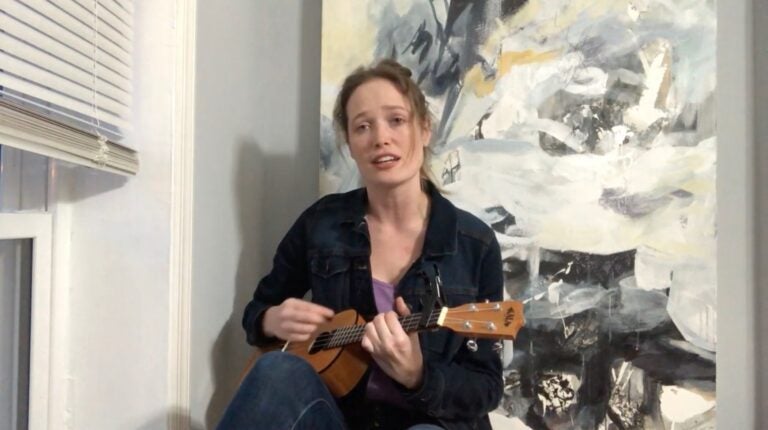
Hannah Wolff plays her part in "Phyre," a multi-platform online play that uses social media, websites and online games to tell its story. Wolff portrays 'Iris,' who lives during a vaguely defined quarantine era and finds herself alone in a city she does not know. (Screenshot from Phyre)
“Hi, everybody,” said Iris, trapped in an apartment overlooking Rittenhouse Square. She has a vague southern slide in her voice (we find out later she’s originally from Tennessee). She does a quick shot between halting sentences to gird herself through this video confession on YouTube.
Iris, played by Hannah Wolff in the online play “Phyre,” lives during an extended, unexplained quarantine that has lasted for at least six months. She was granted permission to travel to Philadelphia in order to care for her ailing grandmother, but then her grandmother died.
“Here I am, alone in her big ol’ apartment looking over Rittenhouse Square which I still have not really been in,” said Iris, looking out the darkened window. “I feel alone in the world.”
Like rolling a message into a bottle cast onto the ocean, Iris turned to the internet to try to connect with strangers. She picks up a ukulele and plays the Iris Dement song “Our Town” to the camera.
“Phyre” is a play designed for the internet, its elements living on the web’s various communication platforms.
“Zoom chatting, social media posting, TikTok-ing, quizzes. All the activities we are doing now are what they are doing in their fictional world,” said Brenna Geffers, co-founder of the Die-Cast Theater company. “I looked at reddit as a narrative structure.”
Die-Cast describes itself as an immersive theater company, tailoring original productions to specific locations. The team had been working up a 9-hour durational performance for a hotel room in Miami as part of a festival of installation art, but the pandemic shut that down.
So the company dusted off an old idea from two years ago, “Pre-Phyre,” inspired by the disastrous Fyre music festival, about people trapped on an island, forming tribal alliances. The team revived those characters for this story of a cult wooing new members into its ranks during a forced lockdown.
It fits our current moment. All the action takes place online in a world where interpersonal contact is taboo.
“I miss people. I miss working with people. I miss being with people in real life, not on Zoom,” said Geffers in an interview via Zoom. “That’s the entryway into the piece: a fantasia on being alone and knowing the world is just right over there.”
Since the COVID-19 pandemic hit our region last month, performance artists and theater companies have scrambled to find ways to connect with audiences online. Many have created videos and live streams of performances at home. The assumption is this shutdown will eventually pass, and theaters can all get back to what they were doing before, on stage in front of a live audience.
Some artists, however, are trying to create new work about what is happening right now, presenting it on the virtual stages that we live on right now: social media, conference calls, streaming video where our voices don’t quite sync up to our images.
“The artists we are drawn to are always trying to wake people up from the torpor of daily life,” said Dan Rothenberg, co-founder of the Pig Iron Theater Company. “Certainly, right now people are awake in terms of how much things can change in an instant.”
Pig Iron has started experimenting with creating performance art out of the tools left to us by the pandemic. Zoom, for example, with its panoply of live-streaming mugshots, lets you choose which face to look at. Just like at live theater, you have some agency about where to invest your attention. You don’t always have to look at the speaker.
Zoom, like all technology, is imperfect. Those imperfections are ripe for exploitation in the service of art.
“One of the weird features of Zoom is you can change your background, but it does something strange to your body, almost ghost-like,” said Quinn Bauriedel, another co-founder of Pig Iron. “Leaning into the problems of the technology is absolutely something we are doing.”
Right now Pig Iron is collaborating with the Japanese playwright Toshiki Okada to possibly revive a play they made several years ago, “Zero Cost House.” Okada had lived through the 2011 earthquake, tsunami, and nuclear meltdown in Fukushima, then wrote a play about sudden, tremendous upheaval in a miasma of environmental fear.
Rothenberg believes it can speak to our situation now, presented with slightly unreliable online technology.
“We are at the stage of tinkering,” he said. “We want to make sure it’s good.”
One project Pig Iron has begun in earnest is a global dance game borrowing from a technique developed by early 20th century French Surrealists: Exquisite Corpse. In the Pig Iron version, a dancer in one part of the world choreographs a 10-second solo dance, and records it on video.
The dancer then sends only the last few seconds – the final gesture – to another dancer in another part of the world, who picks up on those last moves and uses them to create another 10-second dance. Then they send their last gesture to another, and so forth, every day for the month of April.
“A dancer in Sri Lanka is doing it in a garden, the next person is in Sweden with a snow-capped mountain behind them, the next is in Spain where the background is a 14th-century church, next is in Philadelphia next to a rowhome and chain-link fence,” said Bauriedel.
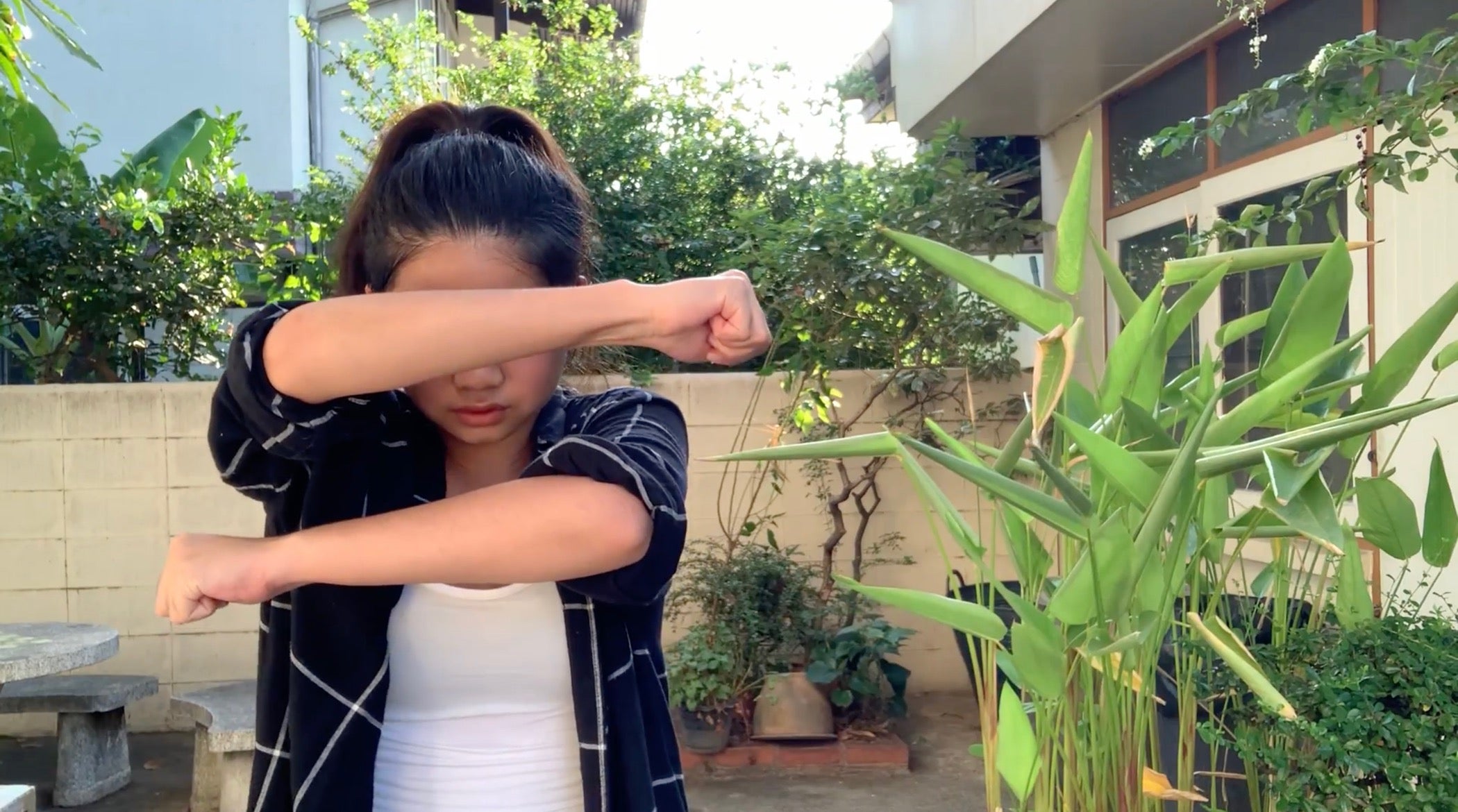
He will collect all the videos and stitch them all together, into a 5-minute video of seamless, though disjoined, dance. It’s choreography by chance, en masse.
“This is a time when we are grieving all the things we used to take for granted: to go into a studio and throw a creative ball in the air and know somebody will catch it,” said Bauriedel. “Nobody has the answer to what will work or won’t. We have to be willing to try and be willing to fail.”
The stated mission of Pig Iron is “constantly asking the hardest questions, both in our art and in its relation to the world around us.” Life during a pandemic shutdown is not an excuse to stop.
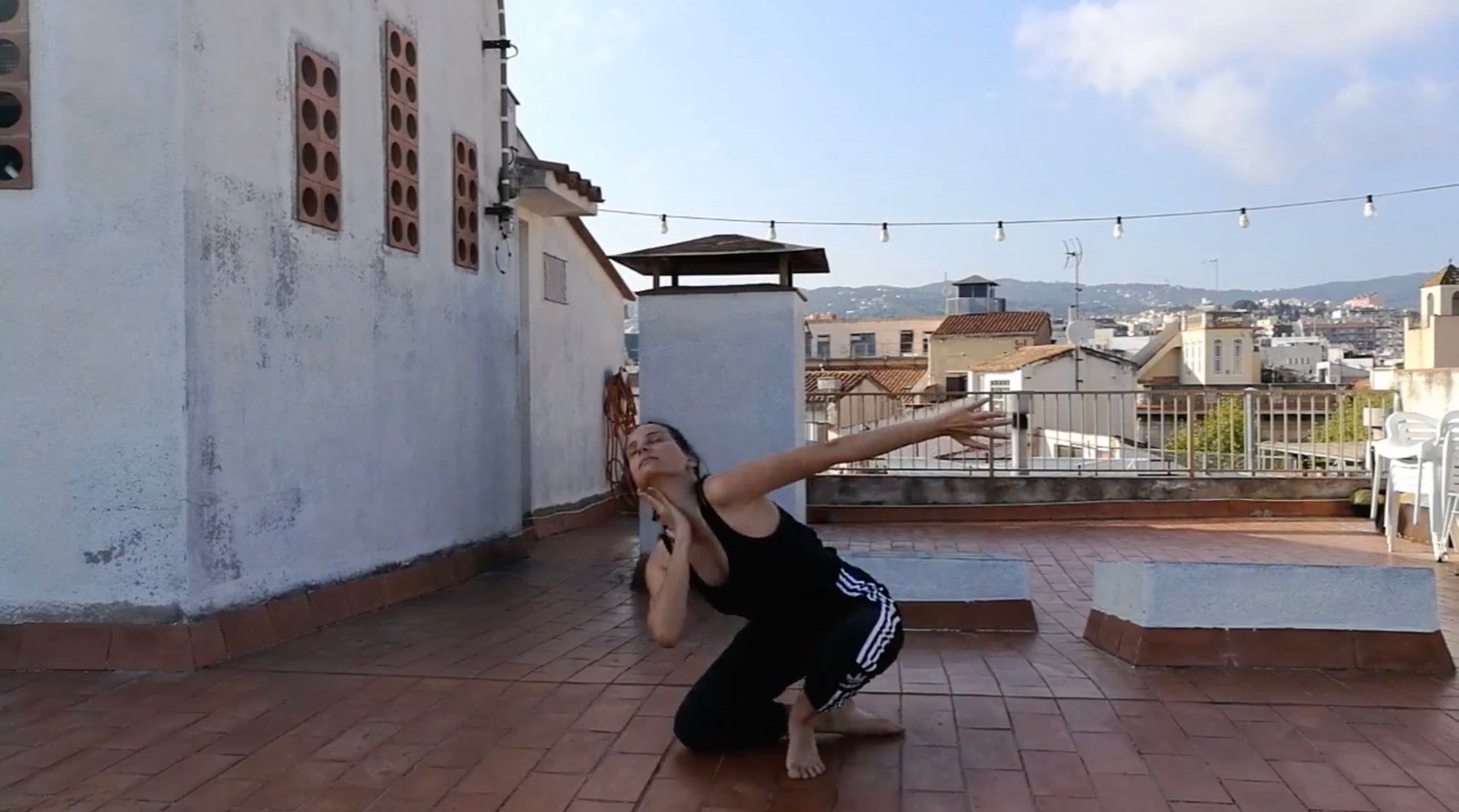
However, the ideal of every theater company, Pig Iron included, is to make live performances in front of an audience, in order to express something like communal intimacy.
“One of the ways we’ve been able to address that in the past is to get people into a room, have them breathe together, and watch people touch,” said Rothenberg. “We are not competing with Netflix and HBO, because of the specialness of that experience. That will probably be the last thing to return. People sitting elbow to elbow together and watching other people touch in real space, will be the last thing to come back.”
“How do you solve the problem of live-ness?” Rothenberg asked. He’s working on it.
WHYY is your source for fact-based, in-depth journalism and information. As a nonprofit organization, we rely on financial support from readers like you. Please give today.





![CoronavirusPandemic_1024x512[1]](https://whyy.org/wp-content/uploads/2020/03/CoronavirusPandemic_1024x5121-300x150.jpg)
